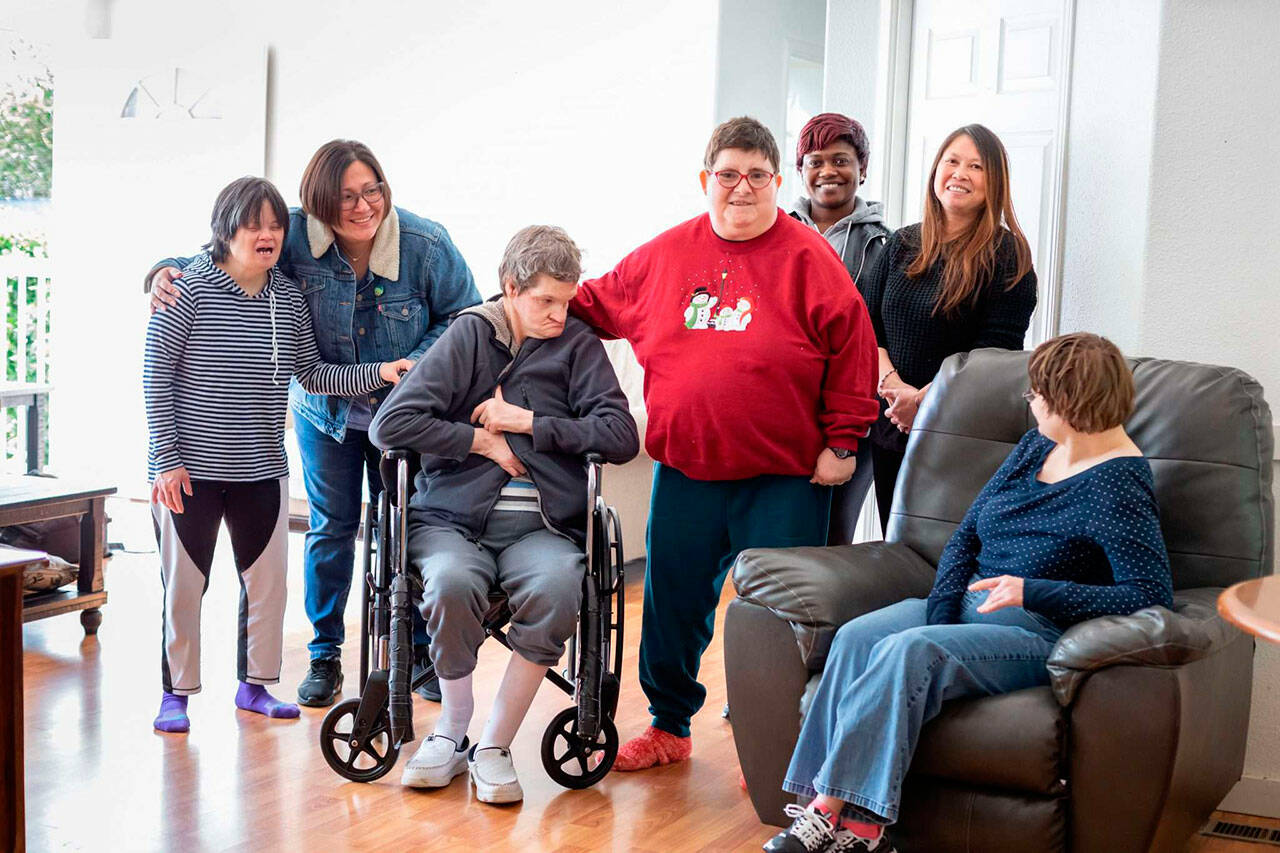By The Herald Editorial Board
Amienata “Ami” Sankareh is one of about 12,000 long-term health care workers in Washington state who provide direct support services to about 4,600 people with developmental disabilities.
The Everett single mother, who came to the United States from Gambia, has worked in care home settings for about five years. During a normal work day she usually cares for about four clients, work that includes getting them up, showered, dressed, fed, given medications and assisted with activities. Two of her current clients are in wheelchairs.
“It’s difficult work, of course,” Sankareh said. “But I like my job and I love my clients. I want to work to help them.”
But it’s also a job that now pays about the same as most other minimum wage jobs in the state, currently $14.49 an hour. Some 14 years ago, most direct support professionals earned about 24 percent more than minimum wage; that figure is now about 5 percent above minimum wage.
For Sankareh, who also is raising a 12-year-old daughter, her current pay rate means that she must work two jobs — for a total of about 60 to 70 hours each week — to make ends meet. Ideally, Sankareh said, she wants to be able to work fewer hours and still support her family and spend more time raising her daughter.
And more than just an economic issue for herself and her daughter, Sankareh said, the low pay for the profession — which requires 75 hours of training before employment as a direct support professional — has meant difficulty in attracting and retaining fellow workers, especially during the pandemic. As well, there’s an element of equity to consider; the majority of those providing this care are from communities of color.
“We’re in the middle of a huge staffing crisis,” said Scott Livengood, the chief executive for Alpha Supported Living Services, a Bothell-based nonprofit agency providing supportive living and group home services to adults and children in Snohomish, King and Spokane counties.
Care facilities, Livengood said, are seeing annual staff turnover of about 50 percent. As the minimum wage has increased in Washington state — increasing this January from $13.50 an hour last year — a demanding field has fought to attract and retain workers.
One new co-worker, Sankareh recalls, showed up on her first day and then didn’t return. She and her co-workers are left shorthanded, which adds to the job’s difficulty and spreads the care to clients more thinly.
But it’s difficult for agencies such as Alpha, Livengood said, to increase pay enough because its services are funded by fixed Medicaid reimbursements, split between federal and state governments. Livengood and others in the supported care sector have made a request to the state Legislature, as it prepares a supplemental budget, to increase Medicaid reimbursements so that Alpha and other providers can raise wages to $18 an hour and provide regular cost-of-living increases to account for inflation.
Also making the case for an increase in the state budget: The state ranks 46th in the country, when measuring the gap between the minimum wage and that paid to direct support professionals.
Lawmakers have been receptive to the request, Livengood said, and good news on state revenue forecasts is also providing optimism. “But we’ve been pushed aside for a number of years. It feels like now is the time to address this,” he said.
At the same time, state lawmakers are looking to address a loss of nurses and health care workers in hospitals and other care centers, including legislation that would require more state oversight of hospital staffing committees and set staffing standards for specific patient units in hospitals, again with the intention of ensuring adequate staffing that eases the daily demand on those providing care and slows and exodus of those leaving the profession. House Bill 1868 passed the House last week and is now under consideration in the Senate.
Even as the covid-19 pandemic continues to ebb, it will have left in its wake health care facilities depleted and workers who are physically and emotionally drained and contemplating careers that are less demanding. With uncertainty about the future of covid — or the next pandemic — it’s necessary now to replenish and support a workforce that cared for ourselves and our families, saved lives and worked to support their own families.
Talk to us
> Give us your news tips.
> Send us a letter to the editor.
> More Herald contact information.

























